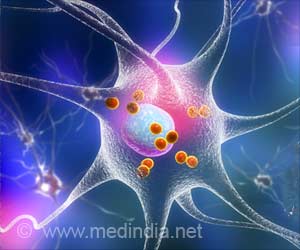- Every year, on May 30, the world comes together to celebrate World MS Day
- It is a significant occasion dedicated to raising awareness about multiple sclerosis
- The theme chosen for World MS Day is 'Connect'
Theme for World MS Day Revolves Around the Concept of ‘Connections’
The World MS Day theme from 2020 to 2023 is centered around the concept of "connections." The motive of the MS Connections campaign aims to foster various forms of connection, including building a sense of community, strengthening self-connection, and establishing connections to high-quality care.The campaign strives to address social barriers that often result in individuals affected by MS feeling isolated and lonely. By working together, the campaign advocates for improved services celebrates support networks, and encourages self-care. Its ultimate goal is to bring about positive change for the future while helping individuals discover their own #MSConnections.
What is Multiple Sclerosis?
Multiple Sclerosis, a prevalent condition affecting the central nervous system, affects over 2.3 million individuals globally, as reported by the Multiple Sclerosis International Federation (1✔ ✔Trusted SourceAbout Multiple Sclerosis
Go to source).
The term "multiple sclerosis" refers to the presence of numerous scars, which correspond to the regions formed on the brain and spinal cord due to the deterioration or loss of the protective myelin coating around our nerves. These lesions are the result of the damaged myelin.
What are the Causes of Multiple Sclerosis
It appears to be a genetic disorder that is modified by environmental variables. Someone in the patient's family is likely to have had the condition.Women are more likely than men to develop multiple sclerosis.
Other variables that may contribute to the disease include a lack of sunlight and vitamin D, smoking, and Epstein-Barr virus (EBV) infections (2✔ ✔Trusted Source
Lifestyle and Environmental Factors in Multiple Sclerosis
Go to source).
Signs and Symptoms to Look out for this World Multiple Sclerosis Day
Some common symptoms of multiple sclerosis include:- Numbness or weakness in one or more limbs on a particular side of the body
- Challenges with walking or experiencing difficulty while moving
- Persistent fatigue or feeling excessively tired
- Unexplained vision issues like double vision, blurred vision, or even complete loss of vision
- Tingling sensations in different parts of the body
- Muscle spasms or stiffness
- Pain in various areas of the body
- Feelings of depression or low mood
- Problems with memory or difficulties in remembering things
- Episodes of vertigo or dizziness
- Sexual, bowel, and bladder problems
- Slurred or unclear speech
- Cognitive issues affecting thinking and reasoning abilities
- Occasional seizures (3✔ ✔Trusted Source
Symptoms of Multiple sclerosis
Go to source)
How do you Diagnose Multiple Sclerosis
A complete physical examination is performed on the patient in order to reach a diagnosis. Furthermore, the doctor may advise on blood tests and imaging procedures such as an MRI.If necessary, an evoked potential test to examine nerve function by monitoring electrical activity in the brain and spinal cord may be recommended (4✔ ✔Trusted Source
Evoked potential abnormality scores are a useful measure of disease burden in relapsing-remitting multiple sclerosis
Go to source).
Is Treatment Strategy the End Treatment for Multiple Sclerosis?
While there is no definitive cure for multiple sclerosis, patients now have access to advanced immunomodulation therapies, some of which can be taken orally for convenience. In addition to medication, it is important for patients to focus on maintaining physical fitness and strength to effectively manage their symptoms (5✔ ✔Trusted SourceTreatment strategies for multiple sclerosis: When to start, when to change, when to stop?
Go to source).
Connect with World MS Day
‘Connect with World MS Day’ and celebrate global solidarity and hope for the future because the cure for Multiple Sclerosis is just around the corner. Use these hashtags #MSConnections #WorldMSDay #WorldMultipleSclerosisDay and do your part in spreading awareness.References:
- About Multiple Sclerosis - (https://pubmed.ncbi.nlm.nih.gov/29320652/)
- Lifestyle and Environmental Factors in Multiple Sclerosis - (https://pubmed.ncbi.nlm.nih.gov/29735578/)
- Symptoms of Multiple sclerosis - (https://www.nhs.uk/conditions/multiple-sclerosis/symptoms/)
- Evoked potential abnormality scores are a useful measure of disease burden in relapsing-remitting multiple sclerosis - (https://pubmed.ncbi.nlm.nih.gov/9749611/)
- Treatment strategies for multiple sclerosis: When to start, when to change, when to stop? - (https://pubmed.ncbi.nlm.nih.gov/26244148/)
Source-Medindia










